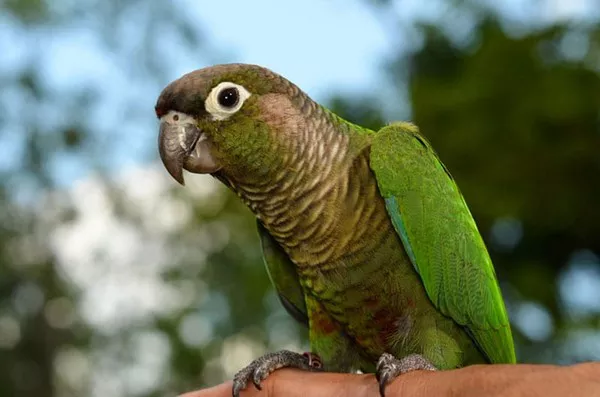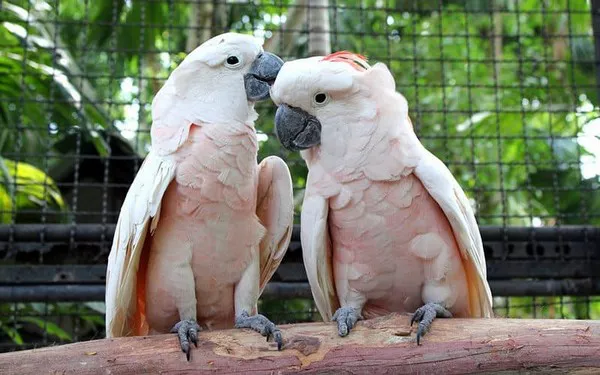Sun Conures (Aratinga solstitialis) are among the most colorful and playful parrot species, prized for their vibrant plumage and engaging personalities. As with all pets, one of the most important considerations when choosing to bring a sun conure into your home is its life expectancy. Knowing how long your feathered companion is likely to live, along with the factors that influence their lifespan, is key to providing them with a fulfilling and healthy life.
In this article, we will explore the life expectancy of a sun conure, the factors that impact their lifespan, and how you can ensure that your pet enjoys a long, happy life.
Understanding Sun Conures: A Quick Overview
Sun Conures are small-to-medium-sized parrots native to northeastern South America, particularly in regions like Brazil, Guyana, and Venezuela. They are known for their striking color pattern, which includes bright orange and yellow feathers on their heads and bodies, contrasting with green wings and tail feathers. Their playful nature, intelligence, and ability to mimic sounds make them a popular choice for pet owners.
In the wild, Sun Conures tend to live in flocks, and they are often seen in tropical or subtropical habitats, where they enjoy warm temperatures and plentiful food sources. As pets, they are affectionate and highly social, needing human interaction and mental stimulation to thrive. Understanding their specific care requirements is essential for maximizing their lifespan.
What is the Average Lifespan of a Sun Conure?
The average lifespan of a sun conure can vary depending on several factors, including genetics, environment, diet, and overall health care. In general, a sun conure can live between 20 to 30 years in captivity, although some individuals may exceed this range with proper care.
Genetics: The natural genetic makeup of each bird plays a significant role in determining its lifespan. While there is no way to predict an individual bird’s longevity with certainty, birds bred in healthy conditions from reputable breeders typically have a higher chance of living a long life.
Environment: The environment in which a sun conure lives can have a major impact on its longevity. A safe, clean, and enriched environment encourages a bird to live longer. Birds kept in less-than-ideal conditions, such as those exposed to stress, lack of stimulation, or poor air quality, may experience health issues that shorten their lives.
Diet and Nutrition: A well-balanced diet is one of the most important factors affecting a sun conure’s life expectancy. Poor nutrition can lead to serious health issues such as obesity, liver disease, or feather plucking, all of which can shorten a bird’s lifespan. A diet rich in fresh fruits, vegetables, high-quality pellets, and a limited amount of seeds will support overall health.
Health Care: Regular veterinary check-ups and immediate attention to signs of illness are essential for preventing and addressing health problems. Sun conures, like all parrots, require access to an avian veterinarian who can provide specialized care. Preventive measures, such as vaccinations and parasite control, are also vital for ensuring your pet lives a long and healthy life.
Factors That Affect the Lifespan of a Sun Conure
While the average life expectancy of a sun conure is between 20 and 30 years, many factors can either extend or reduce their lifespan. Let’s take a closer look at these factors.
1. Diet and Nutrition
A nutritious and well-balanced diet is the foundation of a sun conure’s health. In the wild, these birds feed on a variety of fruits, seeds, nuts, and vegetables, which provides them with the necessary vitamins and minerals to stay healthy. As a pet, sun conures require a carefully planned diet that mimics their natural food sources.
Pellets: High-quality pelleted food should be the basis of a sun conure’s diet. Pellets provide the essential vitamins and minerals that a bird needs and are designed to ensure balanced nutrition.
Fruits and Vegetables: Offering a variety of fresh fruits and vegetables will not only provide nutritional value but also mental stimulation. Sun conures particularly enjoy fruits such as apples, bananas, grapes, and melons, as well as leafy greens like spinach and kale.
Seeds: While seeds can be a part of their diet, they should be fed in moderation. Seeds, especially sunflower seeds, are high in fat and can contribute to obesity and other health problems if overfed.
Avoid Harmful Foods: There are several foods that should be avoided, as they are toxic to birds. These include chocolate, avocado, caffeine, and alcohol, among others.
2. Exercise and Mental Stimulation
Sun conures are highly intelligent birds that require both physical exercise and mental stimulation to stay healthy. In the wild, they fly long distances and are constantly engaged in social interaction and foraging for food. In captivity, they may not have the freedom to fly as far, so providing opportunities for exercise and mental enrichment is essential for their well-being.
Toys: Provide your sun conure with a variety of toys, such as chew toys, puzzle toys, and foraging toys. These help to keep their minds active and prevent boredom, which can lead to destructive behaviors.
Out-of-Cage Time: Allowing your sun conure to roam outside its cage (in a safe environment) for supervised playtime is crucial for both physical and mental health. A sun conure needs time to stretch its wings, explore its environment, and interact with its human companions.
Training: Sun conures are quick learners and enjoy interacting with their human caregivers. Training your bird to perform simple tricks or follow commands can help to stimulate its mind and improve its bond with you.
3. Social Interaction
Sun conures are social birds that thrive on human interaction and companionship. Unlike other more solitary bird species, they enjoy being the center of attention and will often vocalize loudly if they feel ignored. These birds are not suited for individuals who are frequently absent from home, as they can become lonely and depressed.
Bonding with Humans: Sun conures are known to bond strongly with their caregivers and may even become quite attached, following their owners around the house and seeking out affection. Regular interaction and positive reinforcement will help strengthen this bond and ensure the bird’s happiness.
Flock Mentality: In the wild, sun conures live in large flocks, which gives them a sense of security. In captivity, if you have more than one bird, they may form a flock-like bond, which is beneficial for their mental health. However, if kept alone, you will need to provide them with the social interaction they crave.
4. Health Care and Veterinary Visits
Routine veterinary care plays a pivotal role in ensuring that a sun conure lives a long and healthy life. Just as humans need regular check-ups, your pet bird requires the expertise of an avian veterinarian who can detect any health problems early on.
Routine Check-Ups: Annual health check-ups are essential for monitoring the bird’s general health, including weight, feather condition, and behavior. The vet will also check for any signs of disease, infections, or parasites that may be present.
Parasite Control: Sun conures are vulnerable to external parasites like mites or internal parasites like worms. Your veterinarian can prescribe treatments to eliminate any parasites and prevent health complications.
Vaccinations: Some diseases, such as psittacosis (parrot fever), can be prevented through vaccination. Be sure to follow your vet’s recommendations for vaccinations and preventive treatments.
Signs of Illness: Sun conures are known for hiding signs of illness until they are quite sick. Therefore, it is important to be vigilant about behavioral changes, such as decreased appetite, changes in droppings, or abnormal feather loss, which could signal health issues that need to be addressed immediately.
5. Living Environment
The living environment plays a major role in the overall health and well-being of your sun conure. A clean, safe, and enriched environment helps reduce stress, which can contribute to health problems.
Cage Size: A spacious cage is essential for allowing your sun conure to move around comfortably. Ideally, the cage should be large enough for them to spread their wings and climb on perches. A cramped living space can lead to physical and mental health problems.
Air Quality: Like all birds, sun conures have sensitive respiratory systems. It is important to keep their living area free from smoke, dust, and strong odors, all of which can irritate their lungs. Regular cleaning of the cage and environment will help maintain a healthy atmosphere.
Safety: Ensure that your sun conure’s environment is free from any hazards that could pose a danger, such as toxic plants, open windows, or accessible electrical wires.
6. Genetics
While we can control most aspects of a sun conure’s care, genetics still plays a role in their life expectancy. Some sun conures are simply more prone to certain health conditions due to their genetic makeup. For example, some individuals may be predisposed to conditions like liver disease or heart problems.
Choosing a reputable breeder who breeds birds with good genetics can help ensure that your pet has the best chance at a long life.
Tips for Maximizing Your Sun Conure’s Lifespan
To help ensure that your sun conure lives a long, healthy life, here are some additional tips:
Maintain a Healthy Diet: Offer a balanced diet that includes pellets, fresh fruits and vegetables, and a small number of seeds.
Provide Mental and Physical Stimulation: Offer a variety of toys and engage in regular training and playtime.
Ensure Regular Veterinary Checkups: Keep up with health care and regular vet visits to catch any health problems early.
Create a Safe and Comfortable Environment: Maintain a clean, spacious, and safe living space for your sun conure.
Offer Companionship: Whether through regular human interaction or keeping another bird, provide the social interaction that your pet needs.
Observe Behavioral Changes: Be proactive in recognizing any changes in behavior, as these could signal health issues.
Conclusion
The average lifespan of a sun conure is between 20 and 30 years, but with the right care and attention, these lively, affectionate birds can live well beyond that range. By providing a nutritious diet, mental stimulation, social interaction, regular health care, and a safe environment, you can maximize your sun conure’s chances for a long and healthy life.
If you decide to bring a sun conure into your home, be prepared for a long-term commitment. With proper care, your sun conure can be a loving and joyful companion for many years to come, bringing beauty and energy into your life for decades.
Related Topics:






















